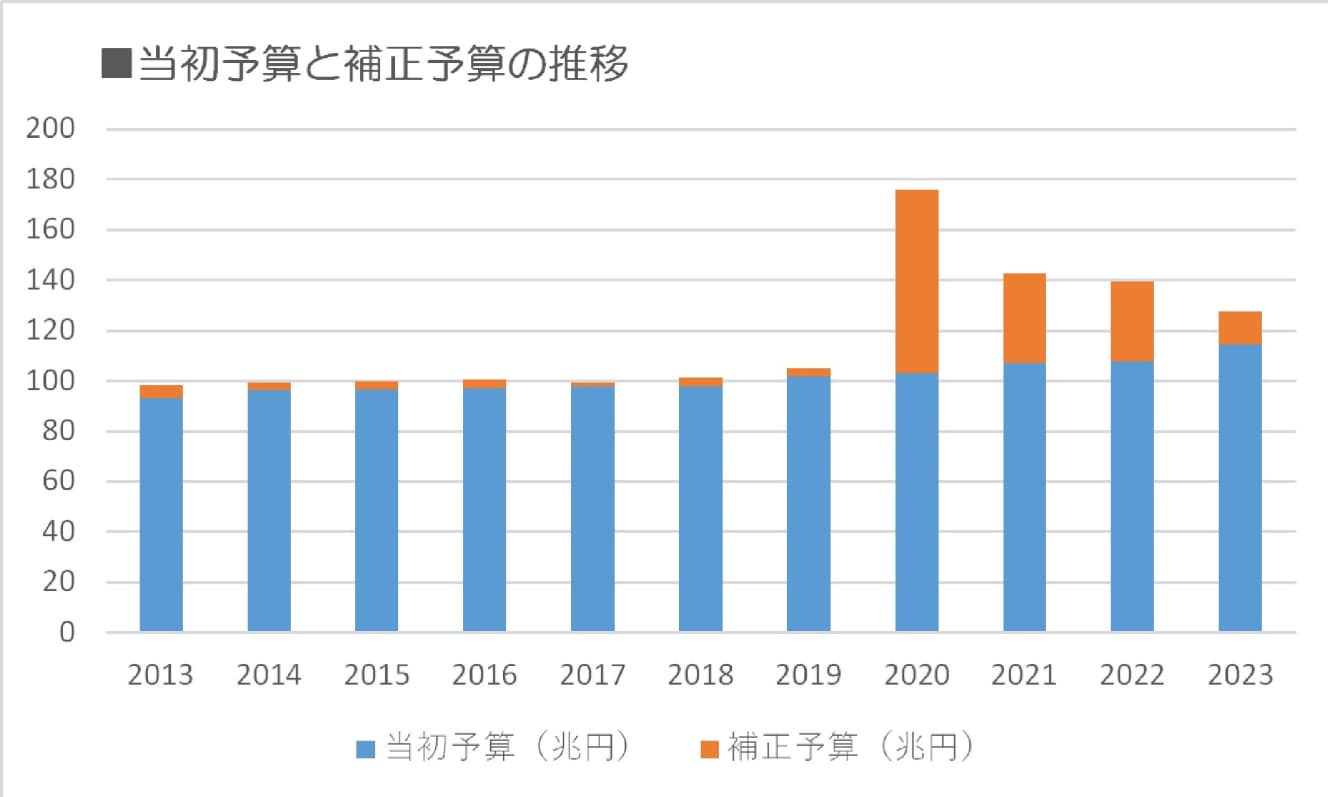Not Just a Bad Thing! Rising long-term interest rates increase interest payments on the “national debt”… but is it a plus for families?
The source of the problem is “ Waste of taxpayers’ money” is the “supplementary budget,” which is full of “wasteful use of taxpayers’ money”?
To begin with, Saito points out that the Japanese economy has been in a contractionary equilibrium due to deflation, but the economy will grow and the size of fiscal revenue and expenditure will expand in the future. What will be important is to avoid spending money on wasteful things, so that there will be no excessive spending restraints, which is called “austerity”
Put another way, “No need to do a supplementary budget. The initial budget is too small,” Saito said. What does he mean?
For the past several years, supplementary budgets have been prepared every fall under the guise of economic stimulus measures. On the other hand, the initial budget at the beginning of each fiscal year has been at a record high every year. This is because it is compared to the initial budget of the previous year. In order to look at the actual situation, it is necessary to compare the total budget amount, which is the sum of the previous year’s initial budget and supplementary budget. Mr. Saito explains that each year’s initial budget is more austere than the previous year’s total budget.

In other words, we can stop compiling supplementary budgets and include all necessary items in the initial budget stage. Of course, additional measures may be necessary for unforeseen situations such as major disasters.
It is easy to include everything in a supplemental budget. It is easy for each ministry and agency to get what they want. On the other hand, the initial budget takes about six months to compile, and the screening process is very strict.
Therefore, ministries and agencies put what they want in the supplementary budget. Supplementary budgets are supposed to be compiled when unforeseen circumstances arise, but in reality, they contain useless things.
Mr. Saito thus sees a lot of waste in the supplementary budgets, which tend to be checked only briefly and laxly.
As a general rule, supplementary budgets that are called economic measures, as is customary every fall, should be stopped. This would “eliminate wasteful spending and curb the issuance of government bonds,” Saito says.
Interview and text by: Hideki Asai